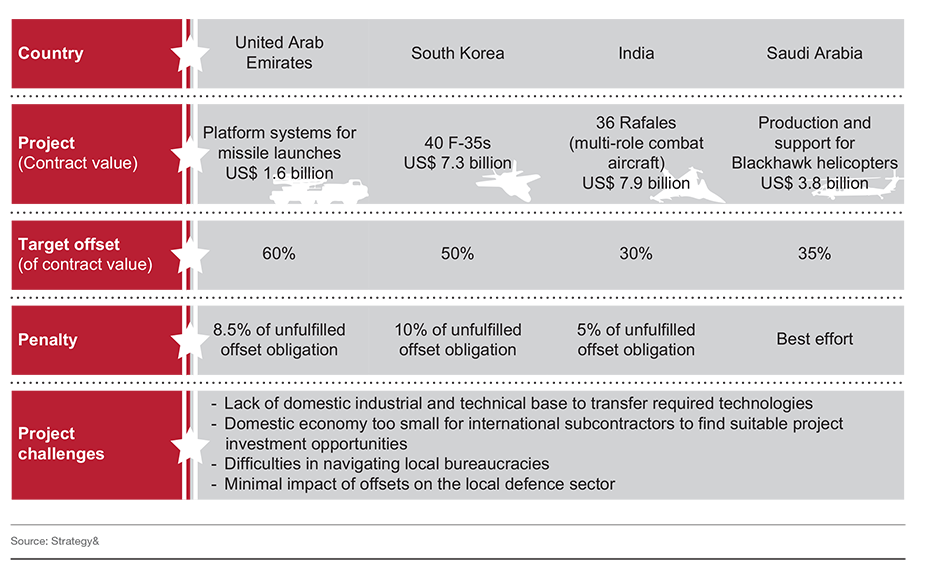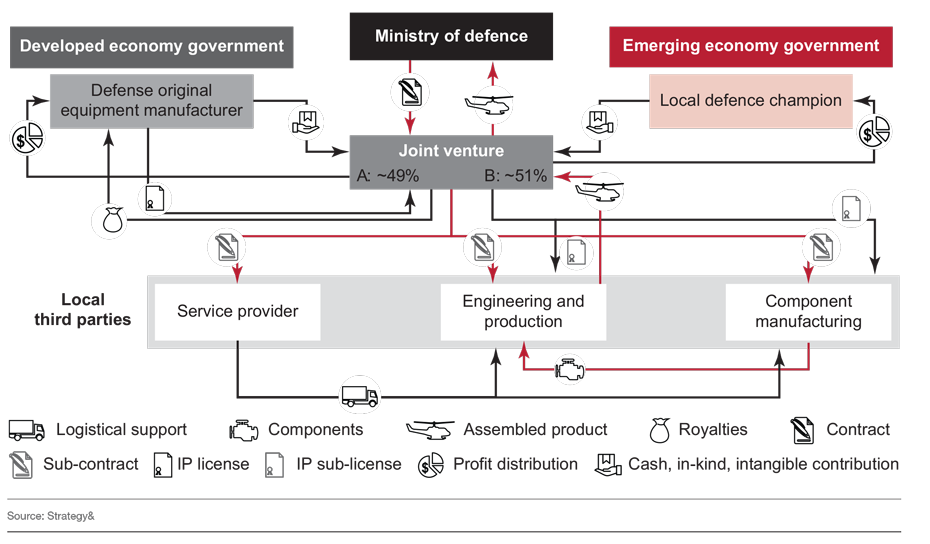Executive summary
Emerging economies are adopting a new approach to defence procurement and the development of their defence industrial base. These countries are among the world’s largest military importers. They represent growth markets for defence original equipment manufacturers (OEMs) in developed economies. To secure lucrative procurement contracts, global defence players traditionally have used offset agreements to transfer technology, boost domestic industrial capabilities, and generate socioeconomic benefits for the buyer. Yet offsets have a poor track record in most emerging economies.
Instead, many countries are moving beyond offsets to forge joint ventures (JVs) with OEMs. JVs are a more promising way to develop the industrial base in emerging economies. The defence OEM contributes technical expertise, training, and intellectual property rights on products and processes. Many successful JVs include a local defence champion that can provide fast access to manpower, shared services, infrastructure, and support in navigating regulations.
There are four leading practices that can make JVs between defence OEMs and buyers in emerging economies more successful:
- Define an industrial strategy and build capabilities incrementally
- Agree on the terms for local content and technology transfer
- Take advantage of capabilities developed during the JV after it has ended
- Determine equity ownership and participation in advance






Menu